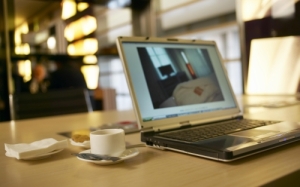“…Only about half of computer users make complex passwords for themselves…In the first six months of 2012 alone, hackers stole over 30 million passwords on hacks of just three online services: eHarmony, Zappos and  lawyer-friendly LinkedIn. Another recent survey, unconnected to the Norton survey, concurrently found that password theft is up 300 percent in 2012…”
lawyer-friendly LinkedIn. Another recent survey, unconnected to the Norton survey, concurrently found that password theft is up 300 percent in 2012…”
The 2012 Norton Cybercrime Report is now out and it points to an incomprehensible laziness on the part of American computer users when it comes to using passwords.
According to this report, nearly three-quarters of adults have been the victim of a cybercrime (averaging a little under $300 per incident), totaling over 70 million people. The worldwide annual total of cybercrime is estimated at $110 billion.
That is coupled with two other problems: people use the same password for multiple functions, and people use passwords that are, in and of themselves, too simple.
The Norton survey was conducted with 13,000 adults in 24 countries. It found that nearly half of those responding do not use a password that combines phrases, letters, numbers, capitalized letters, lower case letters and symbols, which create complex passwords that are far more difficult to hack than passwords that do not have those things.
The survey showed that nearly a third of all respondents have been notified by an email service, social network, or bank to change their passwords. The bank figure—13 percent––is particularly alarming, implying that nearly one in eight people have had their bank account passwords compromised.
Seventeen percent of people store passwords to other accounts inside another password-protected account. Once one password is stolen, the keys to those other accounts are included.
More? A report out the last week of September found that one in 10 people had “1-2-3-4†as their four digit password. My guess is that a substantial number also have “1-1-1-1†and “0-0-0-0†as well.
For more:Â http://www.akronlegalnews.com/editorial/5202







